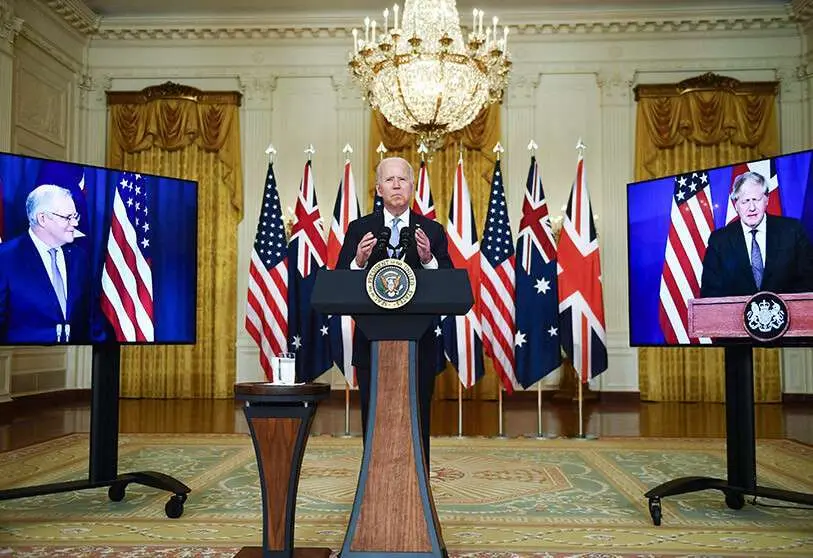Global polytheia

On polítics' (2012), an important work by the political scientist Alan Ryan, an authoritative voice for understanding liberalism in our times based on the historical study of liberal ideas, is on sale at the Pasajes bookshop on Calle Génova in Madrid. The work of this Anglo-Saxon author, professor at Oxford and Princeton and visiting professor at the Australian National University, should not go unnoticed at a time when the new American strategic paradigms, the recent AUKUS alliance in the Pacific and the movements in the international order clearly warn of the changes that are coming in the reconfiguration of the poles of influence in international relations. The search for ideas in history and the need to devise strategies that are solvent and capable of making themselves present in our time affect the actors involved in global governance, among which our country occupies an important, albeit dangerously undefined, place, as is the case with other European countries and powers and other liberal democracies.
The political scientist's attention to the contributions of the Greek historians Herodotus and Thucydides, and the philosophers Plato and Aristotle, as well as classical authors such as Cicero and Polybius, on whose work 'The rise of the Roman Empire', he focuses part of his observation. An analysis of Roman social commitment in the organisation of the army to prevail over the powerful military force of Carthage, but which essentially summarises the virtues of Rome's mixed government, monarchic, aristocratic and democratic. At the same time, it was effective because of the guarantees and extension of its rights over the entire citizenry, and because of the cohesion of its political system, which was decisive in the customs of the city and watchful of the interests of imperial power, not irreversibly subjected to the weakness of individuals, but enhanced by the solvency of the institutions from which the Roman order emanated.
The power that the Roman system was able to impose, share and expand, first in the Italian peninsula and the Mediterranean and then over the world in which it projected its law and protected its strategic interests, was structured around institutions with a partially democratic identity, governed at the same time by aristocratic statesmen, and monarchic in its symbolic representation, also guaranteeing citizens' rights, although not equally so. An absolutely referential model in classical times, inspired by Sparta and classical Greece, pragmatic, based on the supremacy of the laws, and culturally and politically active in the propagation of its principles.
While by no means the mixed political system that underpinned that classical order can be extrapolated to any modern-day global governance formula, the so-called variable geometry in the contemporary international order is not new. The structure of independent sovereignties that took shape in the 20th century during and after the world wars was never rigorously fair or equitable, but it buried the unsustainable colonial domination of peoples and territories. It cannot be described as mixed, although it integrated diverse and unequal political realities into complex organisations where institutional representation sought, among other things, to balance the varying dimensions of different allies and partners. Although globalisation also maintained internal and international imbalances, for economic and political reasons after the fall of the Berlin Wall, the United States, Europe and then other powers in this century were able to take advantage of these historical processes to strengthen their cultural and ideological foundations. But history has shown that the main actors and institutions have not been fully capable of generating an environment of laws and guarantees, where different sovereignties, (human) citizens' rights and common coexistence around values of progress and security would converge and prevail in a stable and globalised manner.
The redefinition of the world order in the 21st century is on the table and involves understanding that the survival of a model of global political coexistence depends on the design of structures, not necessarily mixed, but variable and complex. Either by adapting some of the existing organisations and institutions, or by configuring new ones that are better prepared to face the challenges of our time. From a liberal orientation in its essence and realist in its approach, the approaches to redefining the international order cannot fail to be what they have been in their conception: balanced from their poles of power and influence; equidistant from tyranny and anarchy; based on freedoms and social progress; and guarantors of individual rights without distinction of gender, origin or belief.

